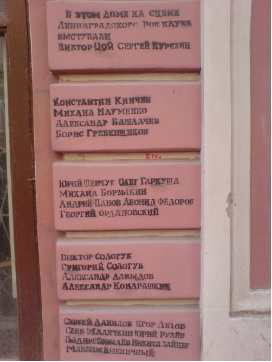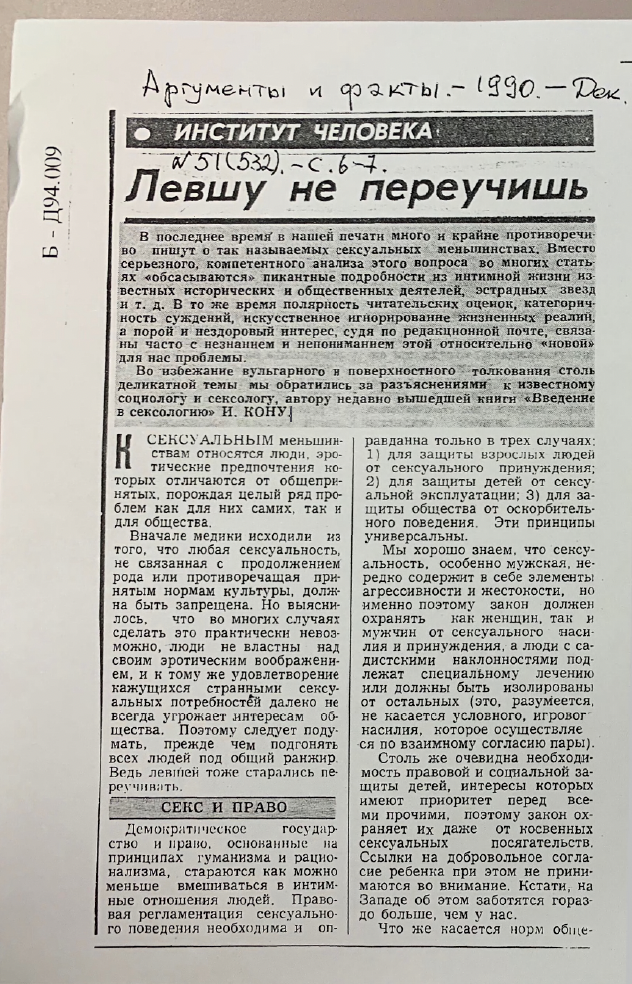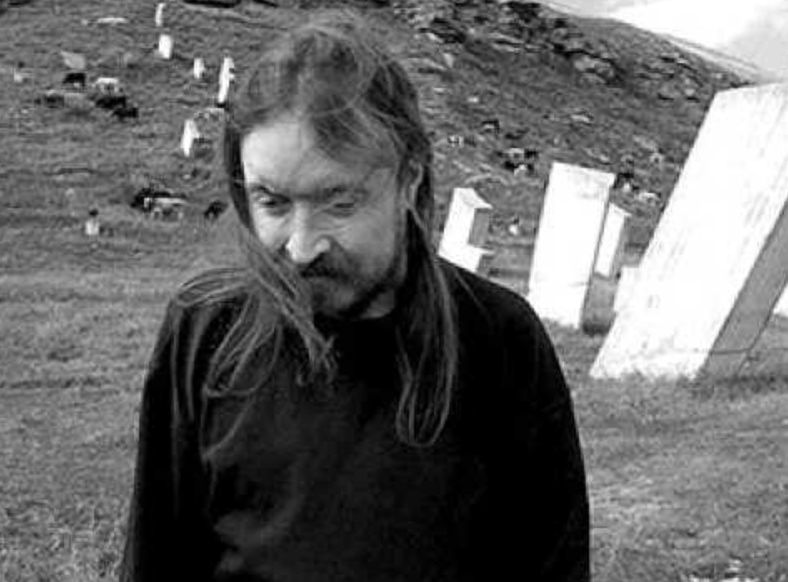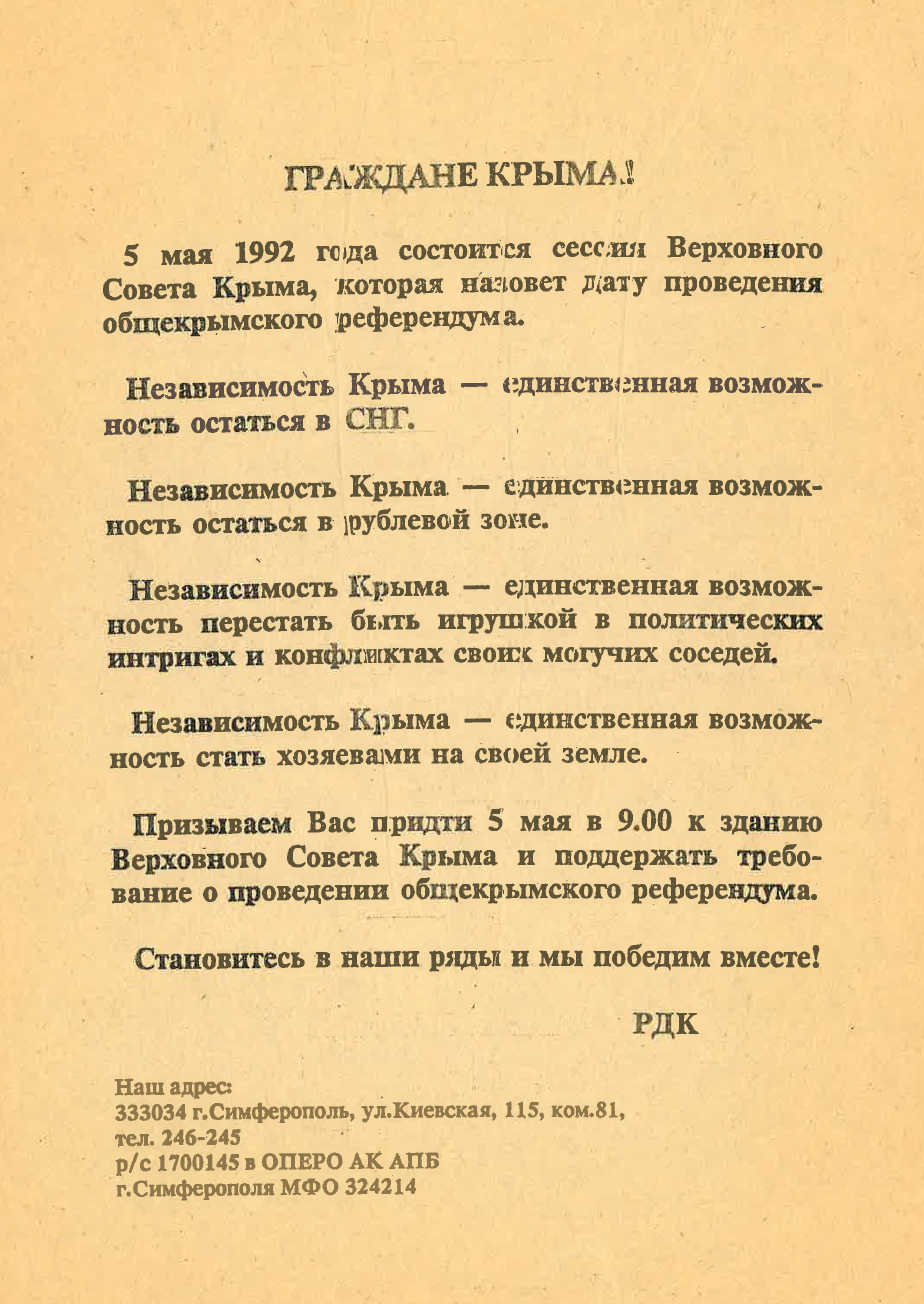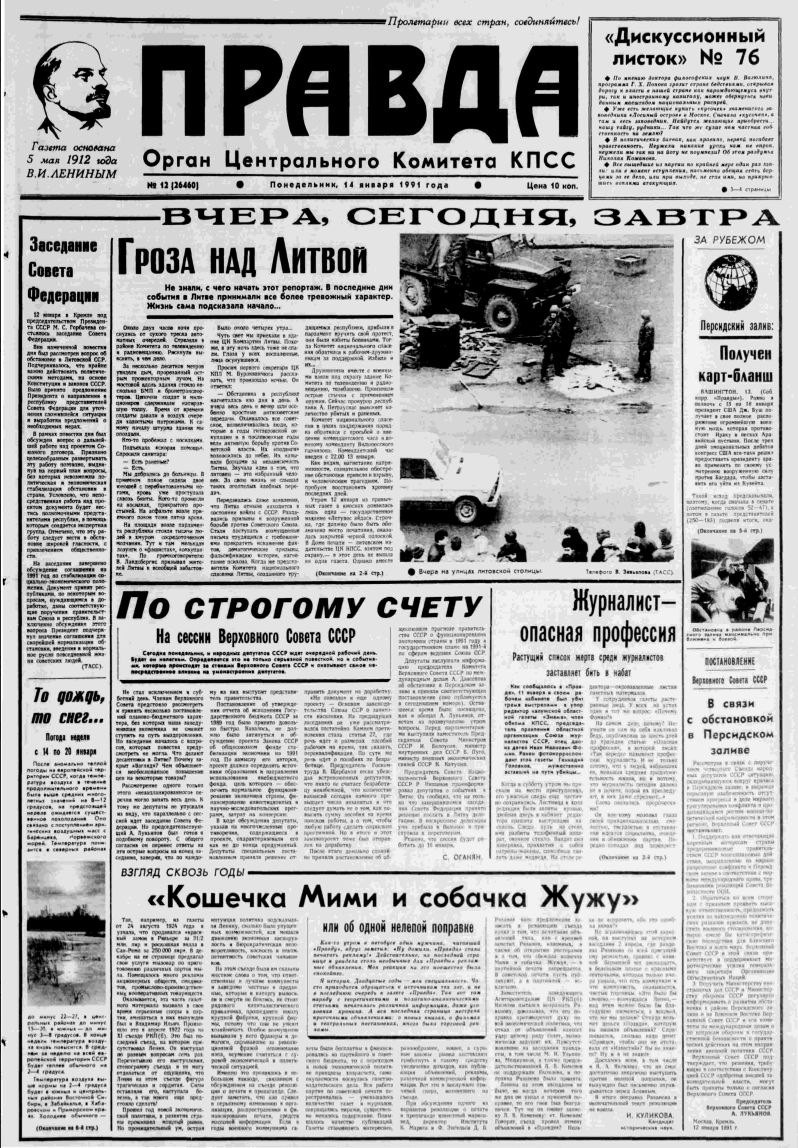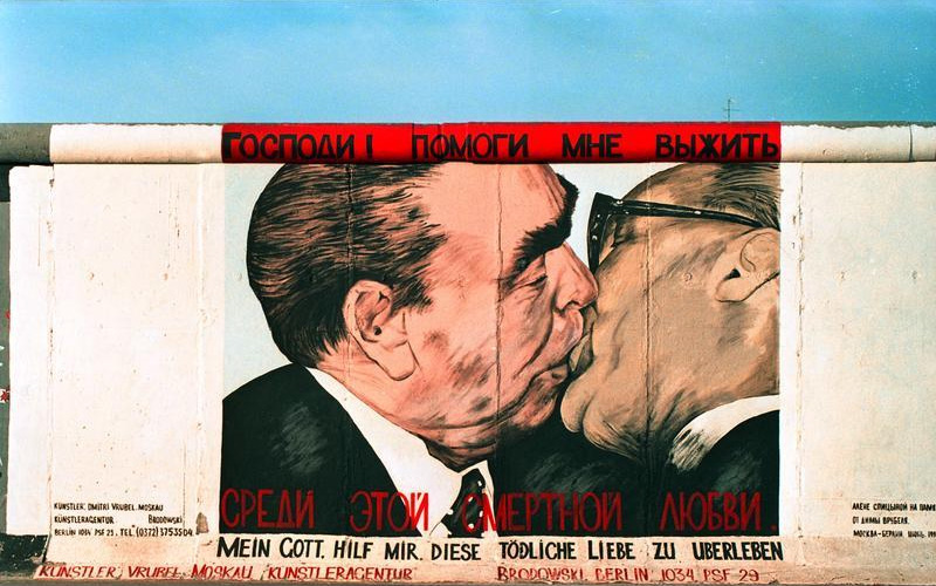Leningrad Rock Club at 13 Rubinshteyna Street, Leningrad/ St Petersburg.
This St. Petersburg graffiti wall, which commemorated the Leningrad Rock Club, survived for two decades until its 2010 erasure by the building’s new owners.
You Can't Teach the Left-handed to Be Right-handed
A 1990 article from the weekly newspaper Argumenty i fakty (Arguments and Facts, in print since 1978) in which journalists seek comment from sociologist and psychologist Igor Kon (1928-2011) on the topic of homosexuality.
The World Made of Plastic Has Won
Yegor Letov (1964-2008) performs his song “Moia oborona” (My defense), during his “concert in the hero city Leningrad,” part of Grazhdanskaia oborona’s 1994 tour Russkii proryv (Russian breakthrough).
The Future of Crimea
Campaign documents surrounding the 1991-92 referenda on the independence of Crimea, Ukraine.
Tanks in Lithuania
Coverage of Soviet tanks rolling into the Lithuanian capital of Vilnius in January 1991 from Pravda, the Russian Communist Party’s press organ since 1911.
Dmitri Vrubel’s “My God, Help Me to Survive This Deadly Love,” 1990, Berlin Wall
Graffiti of Leonid Brezhnev and Erich Honecker kissing on the Berlin Wall, from the East Berlin side.
